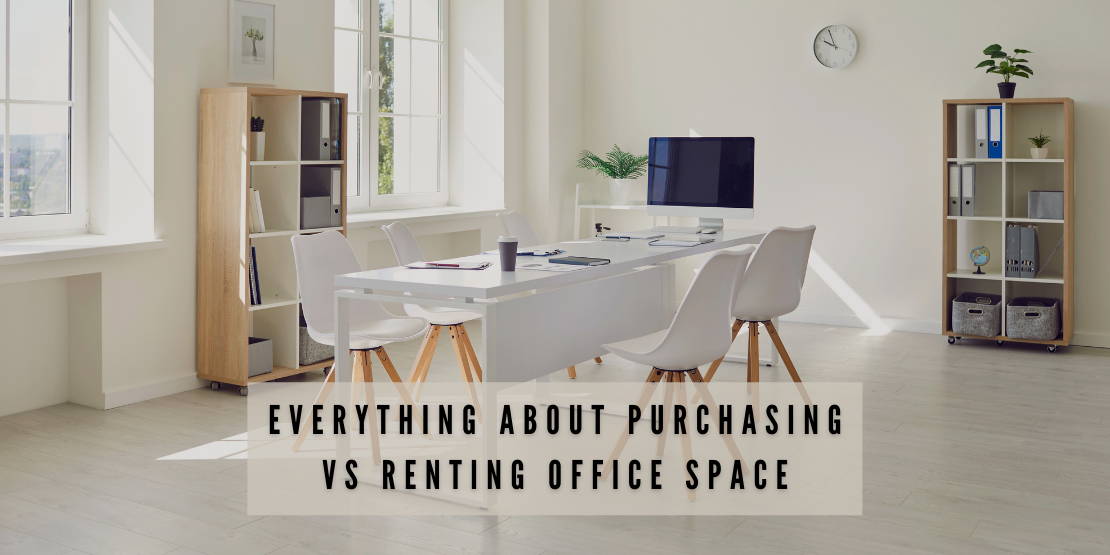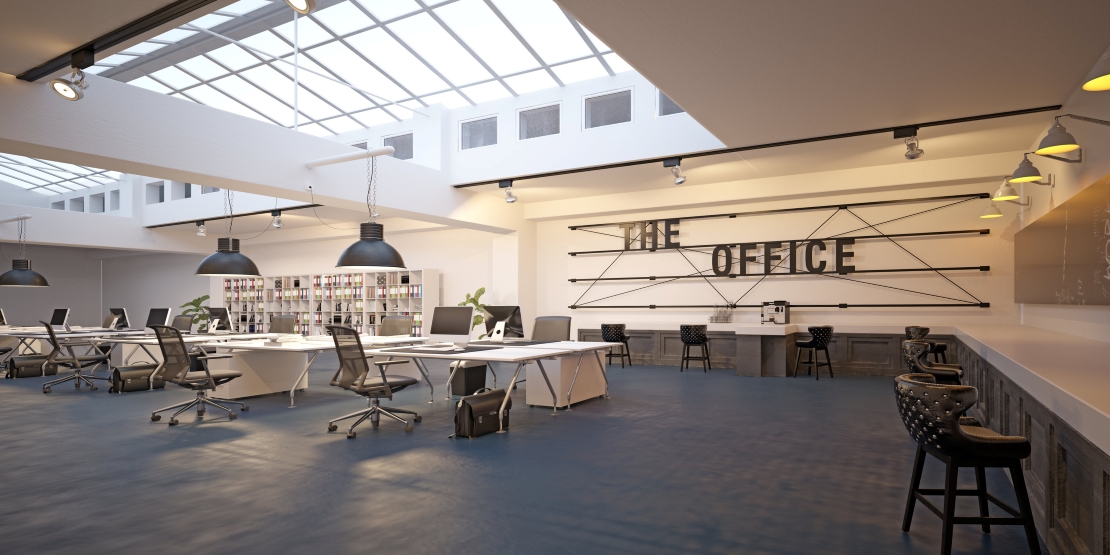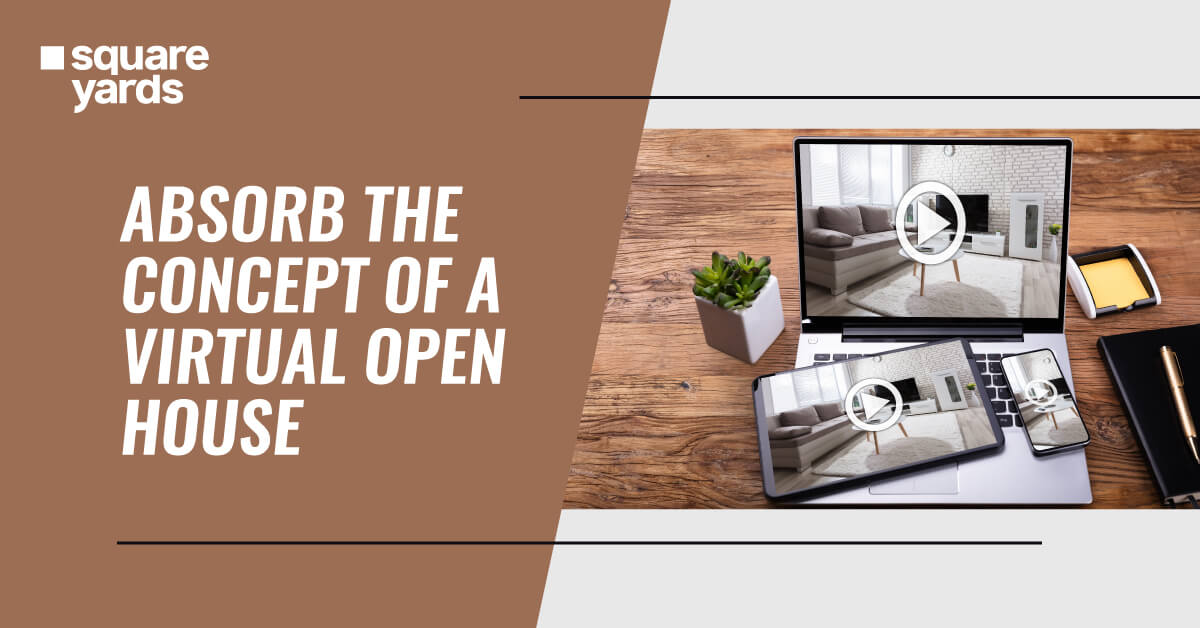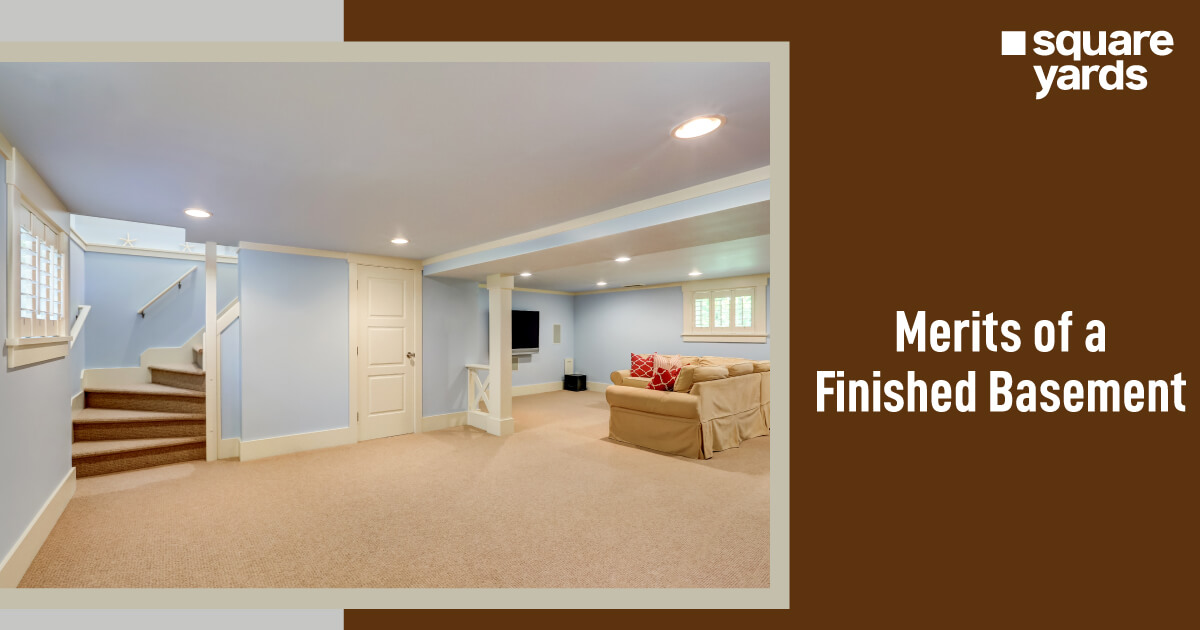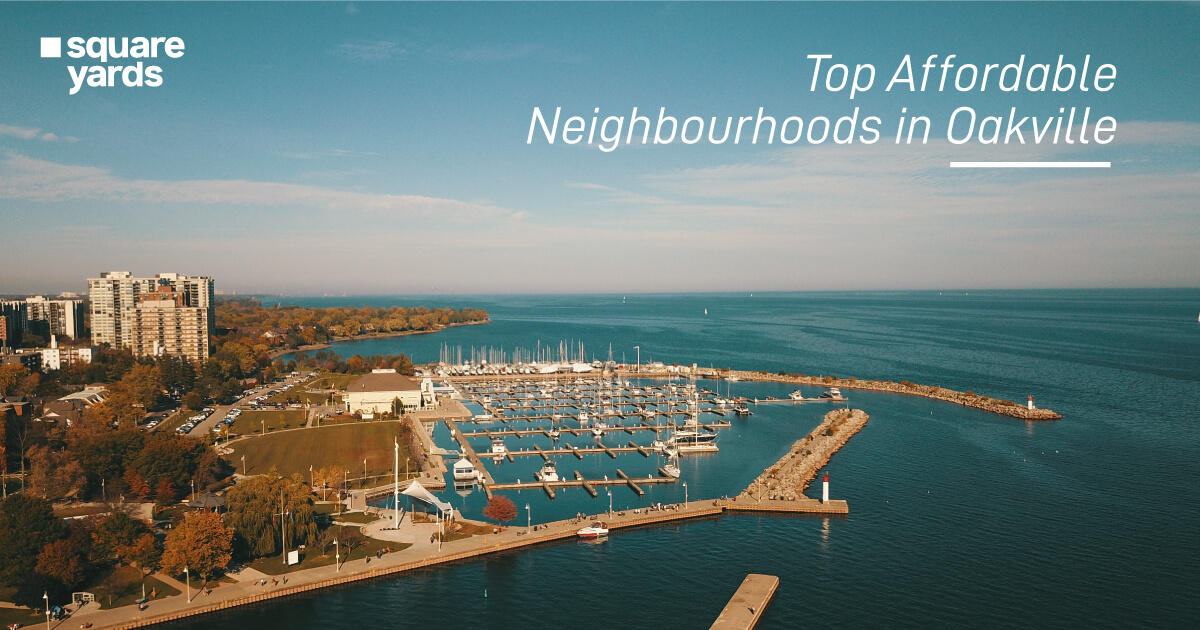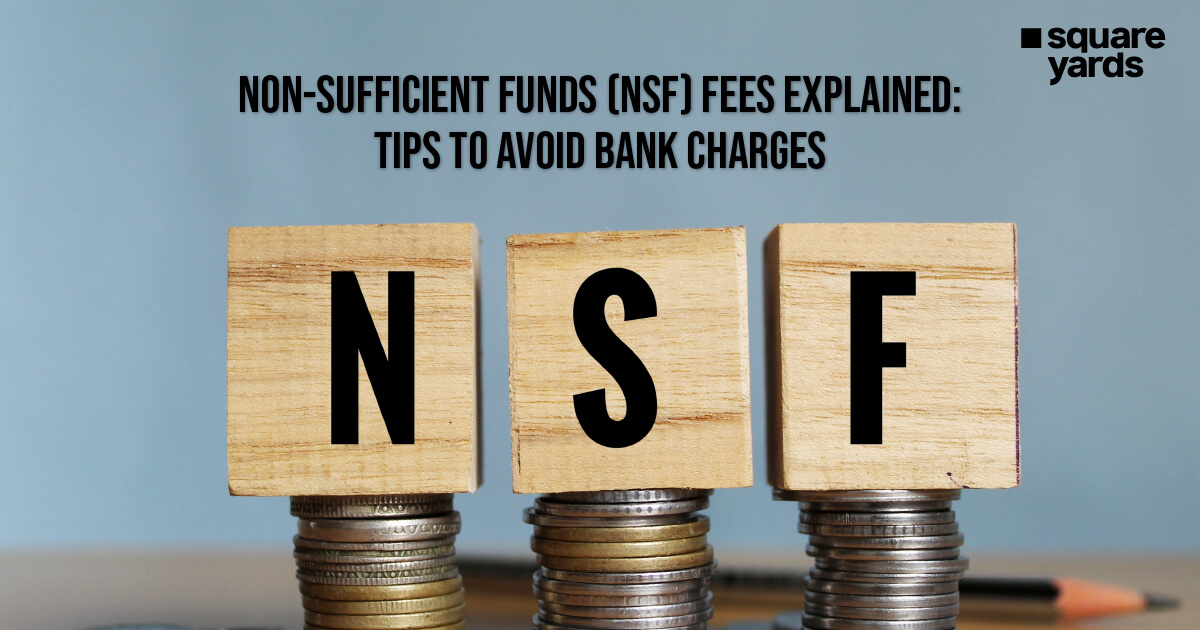Owning a business in Canada and worrying about getting a space for your office? But getting an renting office space or buying office space is an important business decision which needs to be considered after checking all the criteria. As it is a place where you work with your team to give life to your vision and also where you will be spending most of your time during the day.
However, a lot of business owners struggle with the decision of whether they should be renting office space or buying it. And we understand the confusion which we have tried sorting out with all your concerns in this guide mentioned below.
Basic Steps for Renting an Office Space
While searching for an office space for your business, you will require figuring out whether you want to buy it directly or rent it. There is a difference between the two, thus it is important to carefully research before making a choice. If you choose to rent, these are the steps you’d require following:
Step 1: Finding the Ideal Space and Location
-
Property Type
You will come across varied property types and it’s important to choose the one that suits your business needs. Do you want a large space that you can use as a warehouse or a scalable office space? The answer depends on how you expect your business to perform in the future. If you are expecting it to grow, renting an office is a good idea. Buying one right now means going through the hassle of relocation later.
-
Explore Different Locations
Like buying a house, location is an essential part of getting an office space too. So, before you begin office hunting, make sure you research the area. You need to check the surroundings and facilities because there’s a chance, you’d be tied to it for 5 years or more contractually.
Take a close look at the incentives attached to each location. This involves checking if any of your competitors are residing in that location or not. Proximity with competitors is not always a bad thing, it is a sign that the area is worth getting an office at. Here are a few things to consider when selecting an office location for your company:
- Parking Facilities
- Internet Connectivity
- Delivery Facilities
- Local Amenities
- Staff Facilities
- Transport Connectivity
- Fully-Furnished/Semi-Furnished
- Proximity to Clients or Staff
Don’t forget to check the property’s overall condition before agreeing to rent it. The process is like that of renting a house. This means you need to check the property for cracks, plumbing, cracks, and other problems that may require you to talk to the landlord.
Step 2: Take into Account All the Costs
-
Investigate Rent Rates in the Area
Rent is crucial while looking for renting office space in Canada, especially if you are setting up a business for the first time. As an entrepreneur, you’d want to save as much money as possible. Thus, you may want to rent an office which is in a less well-known area. It will help you pay less rent and save money for expansion in the future.
-
Rent Payment
The rent payment methods are different for different landlords as most landlords prefer quarterly and advance rent payments. For instance, the rent for the months of January, February, and March are paid in December. Payments for renting office space should not be mixed with home rent payments. This is because landlords are okay with accepting home monthly rent payments but that’s not the case with commercial properties.
Remember if you have a long-term lease, your payment also involves rent reviews every 2 to 5 years, which can change the rent you pay over time. This may increase or decrease in rent, as per the lease you chose. All these details are generally mentioned in the agreement. So, make sure you go through all of it before signing the rental agreement and if there aren’t any clauses related to renting fluctuation or reviews, ask the landlord about it.
-
Beware of Hidden Costs
You need to consider all hidden costs as there are sometimes hidden charges which no one notices at the time of signing. But the overall cost of rent involves everything from basic rent to maintenance. It also involves hidden or extra costs that the landlord may not talk to you about but charge you later which usually comprises of following things:-
A. Upgrades: Since it’s an office space, the need for upgrades can come up at any time. For example, problems related to HVAC and sprinkler systems can cost thousands of dollars. If you don’t want to be the one bearing those costs, make sure the agreement clearly defines who is responsible for them. `
B. Maintenance: Most lease agreements define upkeep responsibilities. However, there are times when these details aren’t clear on paper, making you liable for their payment. They include costs that you won’t otherwise take note of such as parking lot fixing, snow removal, general maintenance, and more. If your lease agreement does not have a maintenance plan mentioned, make sure you have it included. Also, talk to your landlord about it so you don’t have to pay for things that you aren’t even using.
C. Property Taxes: Depending on the lease agreement structure, you may require paying property tax for a portion of the office space you rent. And not just the tax but also the subsequent tax increase. Many agreements distribute the property tax percentage by the square footage of space a tenant occupies. However, if you are the only tenant, the landlord may charge the entire amount. This could add a lot of cost to your overall rent. So, make sure you inquire about it in advance.
D. Pre-Existing Conditions: When you rent an office, you rent it for a specific time. While vacating the space, the landlord expects you to return the space to its original state. This is something that most tenants find hard. Imagine using an office for 5 years, making changes according to your needs, and then paying someone to reverse those changes. The move-out bill ends up costing you as much as the entire month’s rent. You can avoid this by requesting a pre-existing condition clause that specifies you are not liable for anything like this.
E. Utility Surveys: A lot of times, lease agreements comprise clauses that give property owners the right to order utility surveys. By surveys, we mean making charts on how much water, electricity, or internet the tenant is using. It is through these surveys that landlords find ways to increase utility bills and make tenants pay for them.Before signing the deal, you need to carefully look for utility survey clauses. You can either have the clauses removed or have the landlord hire a third-party surveyor. With an external surveyor, you will also be able to avoid fake bills and cheating. You will only pay for the things you and your team are using, not for anything extra.
F. Personal Guarantee Clauses: Some landlords ask their tenants to sign a personally guaranteed agreement. This agreement covers the cost of rent that the business will require paying if it shuts down before the term completes. For instance, if your lease agreement states you are liable to pay $1,000 per month over two years, you will require ensuring the complete $24,000 is covered. If not, you will have to pay the renting office space amount from your pocket.G. Furniture: Sometimes lease agreements don’t come with furniture or equipment stipends. Thus, you will have to consider the extra space with reception areas, seating, workstations, and break rooms. It may mean taking a few trips to the furniture store and making special orders that could cost you a lot.
H. Kitchen Buildout: Offices are incomplete without kitchen or pantry areas. But having a larger space is not enough; you will need to have the correct appliances in place too. These items help you bring a working kitchen up at par. And sometimes means you might have to invest in some extra sinks and cabinets that would need additional time, money, and effort.
Step 3: Agreement Negotiation
Signing a lease agreement or license is an integral part of closing the deal. Renting office space lease binds the two parties in a set of terms and conditions that they must follow. It provides them with great stability. But before you go ahead and sign the agreement, you need to take a close look at:
- Lease length and any break clauses
- Length of the lease and clauses related to breaks
- Rent-Free and Rent Period
- Rent Review Details (when and how)
- Maintenance and service costs – overall cost along with each party’s responsibilities
- Bill Payment (when and how)
If you are planning to get an office for a short duration such as 6 months, getting a license is a good option. It is in fact the best option for businesses that are just starting up. You will find a lot of license types depending on the type of office space you choose.
Bear in mind that you’d have to pay a license fee though. The fee can be due on a weekly or monthly basis and is usually equivalent to rent.
-
When to Sign the Contract
After you have decided the terms from your end, it is up to the landlord to agree with them and vice versa and if the landlord does not agree, the agreement is subjected to negotiation. Both the parties discuss with what they’re okay and or not to finally create a contract they can both agree with. Once the offer is accepted, ask the landlord to stop marketing the office for sale. The document will include the following details:
- Agreement Type
- Deal Description
- Type of Currency, Payment Arrangements, and Rental Value
- The proposed timeline along with the completion date
Make sure you also go through the entire office space once. Doing so will help you identify problems that the landlord may otherwise be hiding. You should know how the space looks like, what facilities are it offering and what damages or fixes it requires. After that, talk to the landlord about it and agree on who will be looking after those repair costs.
Once the office space survey completes, prepare a Schedule of Condition Report that depicts the current state of the office. It is best to attach photographs as proof, with the agreement. This way, the landlord won’t be able to make you liable for paying for damages or repairs.
Conducting a local search is also an exceptional way to find out if the office space you are planning to buy is worth it or not. The search involves:
– Planning and creating Regulations
– Roads
– General Issues
Step 4: Finish the Deal
Exchange the contracts once you have arranged the money and are satisfied with the terms of the contract. This deal will bind you with the landlord in a legal contract. You won’t be able to make any changes to the contract without the agreement of the other party. The contract will be liable for a ‘set’ duration only.
Advantages and Disadvantages of Buying Office Space
Now that you know what goes behind renting an office, we’d like to share a few details on buying one. The decision of buying an office comes with its own merits and risks, let’s have a look at them one by one: –
Merits of Buying Office Space
- An Asset for Lifetime: When buying an office, you buy an asset. It acts as collateral security that allows you to take loans in the future. Before deciding on buying an office, make sure you examine the present situation of the business, your goals, and your profits.
- Tax Deductions: If your purchase a property via a loan, the monthly interest payment can be deducted from taxes as an expense. This results in great savings as property investment otherwise involves a huge amount.
- Option to Rent Out: If the office space is huge and you aren’t occupying it fully, you can convert it into a shared office space. This means you can rent out the space you aren’t using and earn extra monthly income with it.
- Make as Many Modifications as You Want: As the owner of the office, you have the right to customize the space as per your needs and convenience. Unlike renting, where you must follow the rules and regulations of the landlords, buying an office gives you a free hand. You can even consider your staff’s requirements and make modifications to the office space accordingly.
Demerits of Buying Office Space
- Investment Risk: The disadvantage of buying an office is the initial cost you pay for it. This might affect your business for a short while. Renting on the other hand is less expensive. To buy an office, you need to ensure your company is stable enough to cover the payments.
- Maintenance Costs: Another demerit is the maintenance that comes with it. You will require taking into consideration varied costs such as equipment, repair, furniture. Sometimes you’d have to pay maintenance fees for external fixtures and communicable spaces.
- Commitment to the Place: Buying an office keeps you tied to the location for the long term. Therefore, it is important to recognize your business needs keeping long-term goals in mind. Don’t forget to analyze the space in advance because you’d be tied to the space too. Once you pay for it and buy it, you won’t be able to relocate easily like you can when renting an office.
Conclusion
Leasing an office space allows your business to be more agile, flexible, and scalable. But whether you want to rent or purchase an office is something that depends on your business goals.
If you’re concerned about equity and want to have complete control over the space, then buying is the best option for you. However, if you do not want to go through the hassle of managing the space and have more cash flow, choose to rent.
To make a better decision, consult your financial advisor or accountant. They’re professionals in the field and would know what would make a better choice. Do not select an office because you like it. Consider all the options, read the pros and cons thoroughly and then decide.

